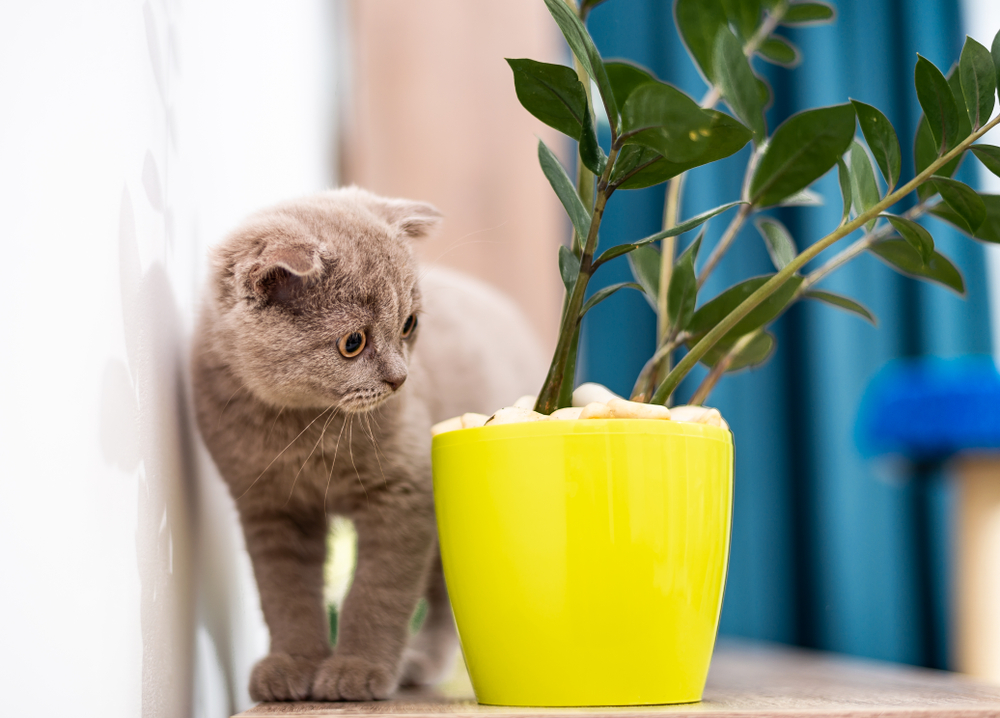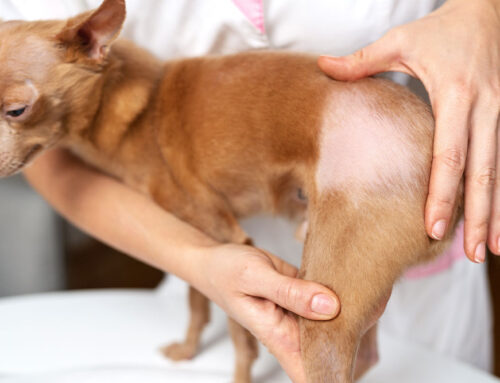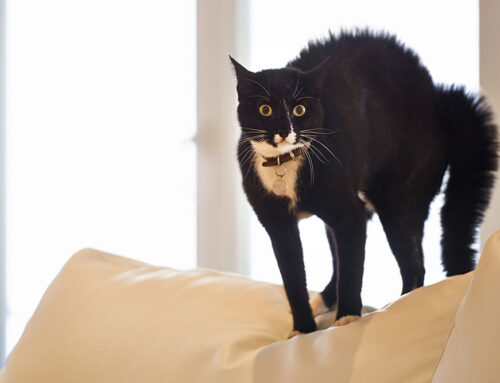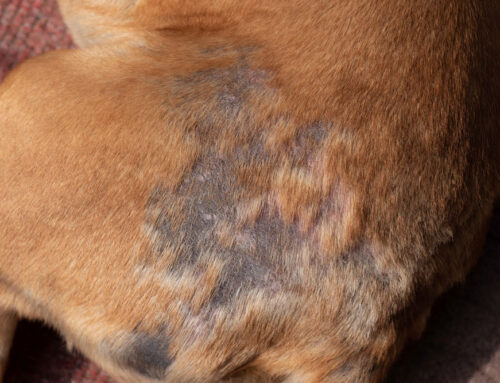Inside your home, garage, and garden are a plethora of potential hazards and toxins that could prove extremely dangerous to your pet. Read on for some important facts to consider regarding home and garden toxins.
Fact #1: Human medications are the most commonly reported pet poison
According to the American Society for the Prevention of Cruelty to Animals (ASPCA) Animal Poison Control Center (APCC), human medications were the most commonly reported poisoning cases in 2017. Prescription medications were No. 1, with over-the-counter medications following a close second. Since there is such a wide range of potential medications, signs of ingestion or toxicity can vary extensively. If you suspect your pet has ingested a medication, you will need to identify the medication so the APCC and our veterinary team will know best how to treat the toxicity. Avoid this situation by putting all medications in a cabinet out of nose’s reach.
Fact #2: Many of the foods we enjoy are toxic to pets
It can be hard to resist giving your dog a taste of your delicious meal while she sits at your feet, begging. But, resist the urge—many human foods can make dogs and cats violently ill. Avoid giving your pet the following foods:
- Chocolate — Can cause hyperactivity, heart abnormalities, and neurologic and gastrointestinal problems; the darker the chocolate, the more toxic
- Grapes and raisins — One grape can potentially cause kidney failure
- Onion and garlic — Garlic is more potent than onion, but both can cause anemia
- Xylitol — A sugar substitute that can cause acute liver failure
- Yeast dough — Can cause dilatation in the stomach
Fact #3: Rodenticides can be alluring to all animals
The products you purchase to rid your home of mice, rats, and other rodents can kill not only the small animals they were designed to eliminate, but also can seriously harm your pet. The rodenticides on the market all have different modes of action, and if your pet ingests one of these poisons, you must know the type so our team knows how best to treat the toxicity. If at all possible, refrain from purchasing these poisons and keeping them in your home. Remember that an animal can suffer from rodenticide poisoning by directly eating the poison, or by consuming a rodent who has ingested the poison.
Fact #4: Not all plants are created equal

Many ornamental and edible plants can be harmful to dogs, cats, and other species. Consider altering your landscaping if you have any of the following plants:
- Lily species, particularly Lilium sp and Hemerocallis sp — Especially toxic to cats
- Rhododendron and azalea — Can cause gastrointestinal, nervous system, or cardiac abnormalities
- Sago palm — Can cause effects similar to the rhododendron species
- Oleander — Contains cardiac toxins
- Rhubarb — Can cause calcium abnormalities and oral irritation
- Garlic and onion — The plants have the same effect as the food
Fact #5: Your garage can be a danger zone
Many garages are filled with potentially fatal substances, such as ethylene glycol, also known as antifreeze or coolant. This highly toxic automobile fluid is a commonly reported poison, since its sweet taste is enticing to animals. Consider purchasing a pet-safe formula that does not contain ethylene glycol. Other chemicals, such as diisocyanate glues—commonly known as Gorilla Glue®—can be extremely dangerous for pets. Dogs can ingest these glues, which rapidly expand and harden in the stomach and require emergency surgery. If you purchase these products, ensure they are kept in a cupboard or shelf that pets cannot access.
If you suspect your pet has ingested a poison, call the APCC immediately or contact us. Never take poison ingestion lightly, as some cases can be fatal if left untreated.








Leave A Comment